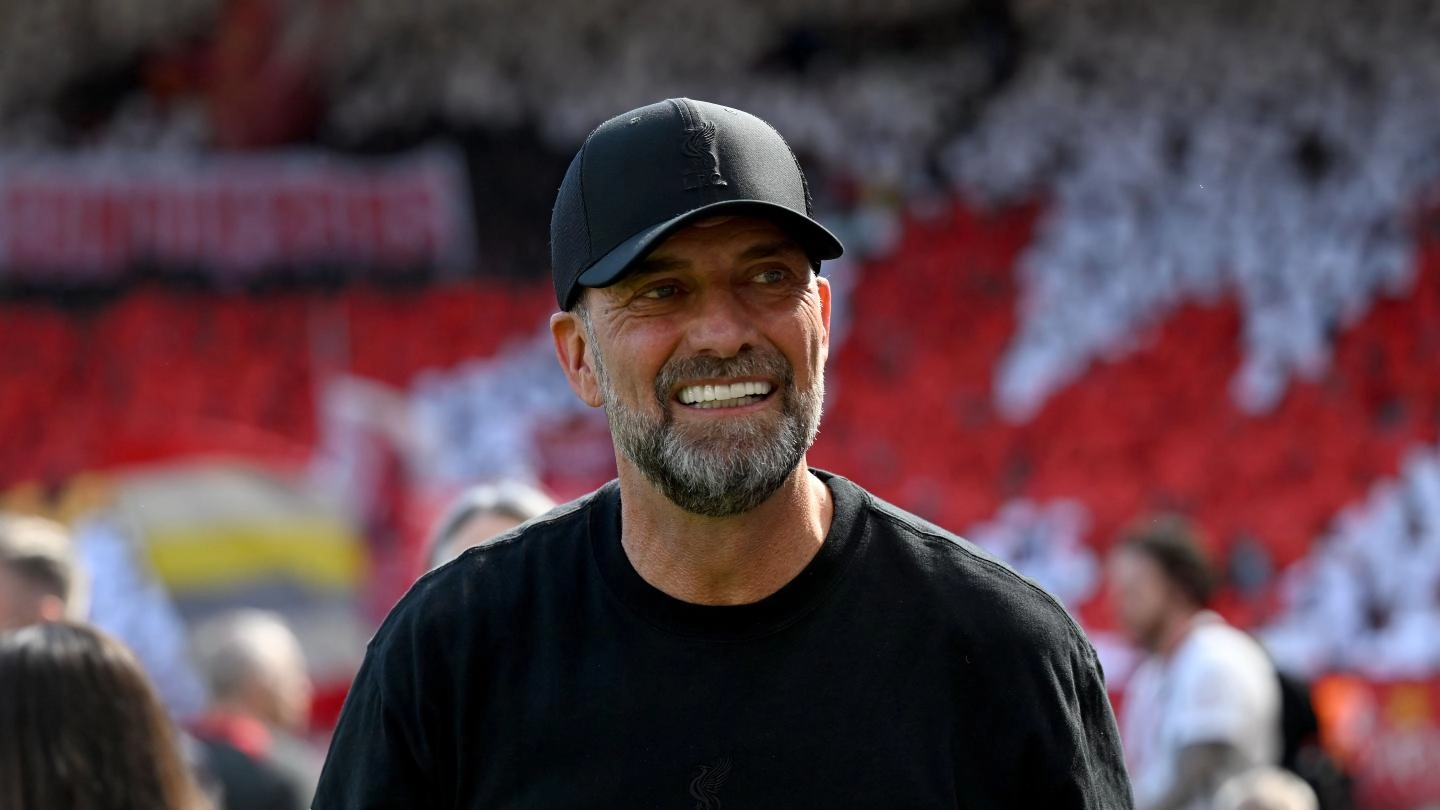ColumnBrian Reade: Klopp spoke our language - it was one of the most thrilling rides ever
In a guest column, journalist and lifelong Liverpool fan Brian Reade gives us his view on why Jürgen Klopp is an honorary Scouser and his Reds legacy is up there with the greats like Bill Shankly and Bob Paisley.
He leaves us with so many precious memories.
Of spine-tingling European nights and blissful Wembley afternoons. Of a team of unstoppables who virtually lapped the opposition en route to becoming English champions. Of days in the desert where Liverpool achieved something that had always eluded them: the title of the best team on earth.
But Jürgen Klopp leaves us with so much more than that. He leaves with an emotional bond that will never be broken because the Normal One, a hipster guy from a small Black Forest town, “got” Liverpool FC and Scouseness overnight. He spoke our language, he shared our passion, our principles, and our bloody-minded pride in who we are.
If I had to submit one piece of evidence, m’lud, to sum up the power of Klopp and the special link he forged with everyone who holds Anfield in their heart, it would be his programme notes before the legendary 4-0 comeback against Barcelona.
Liverpool had been thumped 3-0 in the Nou Camp, the all-conquering Catalans had Lionel Messi and Luis Suarez in attack and the incentive to be crowned European champions a few weeks later in the backyard of their detested rivals from Madrid.
The whole of Europe saw Anfield as just a stepping stone to Barça’s ultimate fantasy. Except Klopp. This was the rallying cry he sent to fans and players before that game.
“This Liverpool never stops. This Liverpool never quits. This Liverpool gives everything at all times. Whatever happens this Liverpool leaves it all on the pitch and nothing left for regrets. We don’t do ‘if only’.
“No-one wants to deliver more than the boys in our dressing room. I’ve spoken before that wanting something isn’t enough on its own – and my god, do our boys go beyond just wanting. Tonight we ask of our boys to go again. Dig even deeper than they have already. The amazing thing is that they need no words, no encouragement, no outside motivation. They don’t seek excuses.
“They are ready – they want this opportunity. They want to go again and never stop. They have their own answers. This is why they are giants.”
And his pre-match battle-cry to his giants (who were missing Mohamed Salah and Bobby Firmino): “You can do it tonight if you show some ******* balls.”
Boy, did they show balls. Boy, did they show them throughout Klopp’s time in charge, when going behind in a game meant nothing. What mattered was being brave, giving your all and keeping on believing in the cause.
I belong to Generation Shankly, that lucky group of Liverpudlians who started going to Anfield in the 1960s, who fed off the great man’s aura and reaped the rewards of his work and that of his Boot Room successors.
And I have no hesitation in saying that, as magnificent a manager that Bob Paisley was, Jürgen Klopp is the second-most transformative figure in modern Liverpool history after Shankly.
Like Shanks, Klopp was an outsider who fully embraced Liverpool and its people, who lifted a huge club out of the doldrums playing a brand of rock ‘n’ roll football that took us on a wondrous journey. He made us proud again. And he stayed true to the spirit of our city and to himself. Read those Barça programme notes again in Shankly’s voice and you’ll see what I mean.
Over recent weeks I’ve heard pundits and rival fans try to play down his achievements by pointing out he only won one league title, before asking, “So, was Klopp all that?”
Well yes, he was all that, and more. And if you don’t understand why, well, you really should have been there.
It was one of the most thrilling rides in football. Ever. Danke, Jürgen.
You have to accept cookies in order to view this content on our site.
Watch on YouTube